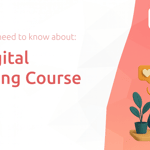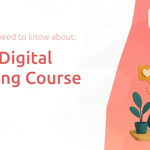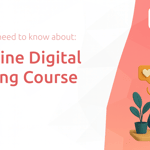
Debt can feel like an insurmountable mountain, but with the right approach, you can conquer it and reclaim your financial freedom. This guide offers comprehensive, actionable strategies to help you eliminate debt and build a brighter future.
By understanding the nature of your obligations, crafting a realistic plan, and leveraging proven techniques, you can make consistent progress. Empower your finances with strategic planning and bid farewell to debt for good.
Not all debt is created equal. Good debt—such as mortgages or student loans—often comes with lower interest rates and potential long-term benefits. Conversely, high-interest credit card balances used on nonessential items represent bad debt that can spiral out of control.
Beyond numbers, debt creates emotional stress. Constant collection calls, damaged credit scores, and sleepless nights can erode well-being. Recognizing these stressors is the first step toward breaking free.
A clear snapshot of your finances lays the groundwork for debt elimination. Begin by listing every obligation:
Next, record all sources of income—salary, freelance earnings, side gigs—and tally regular and seasonal expenses. Include savings, investments, and other assets. Gain a holistic view of your finances before proceeding.
Prioritize overdue debts and accounts in delinquency, as these not only damage credit but also accrue penalties rapidly.
A realistic budget ensures you spend less than you earn and channels surplus funds toward debts. Follow these steps:
Consider simple lifestyle adjustments—buy a used car instead of new to prevent steep depreciation losses, or pack lunches rather than dining out. Small cuts add up.
Celebrate milestones—when you eliminate a credit card or reach a payment target—to maintain motivation on this journey.
Two popular methods dominate the debt payoff landscape:
Choose based on your personality and financial priorities. Some opt for the avalanche to save money; others find the snowball’s emotional momentum critical for staying on track.
For clarity, consider the comparison below:
When traditional repayment feels out of reach, explore professional assistance. Start by calling creditors directly to request lower interest rates, waived fees, or hardship programs. Many lenders will accommodate if you explain your situation professionally.
Alternatively, enroll in a debt management plan (DMP) through a reputable credit counseling agency. Participants typically close certain accounts, pay monthly fees, and make a single consolidated payment. Studies show about 68.4% of DMP enrollees successfully complete the program, while 28% cancel due to financial hardship.
Debt settlement firms negotiate lump-sum agreements, charging fees of 15–20% of the enrolled debt. Success rates vary—74% of clients settle at least one account within three years, and 23% settle all—but outcomes depend on creditor cooperation and consistent payments.
The debt relief industry contains both reputable providers and predatory scams. Protect yourself by:
Avoid companies demanding large upfront fees or pressuring immediate payments. Always validate debts before making any transactions.
Stopping new debt accumulation is crucial. Close unused credit accounts or store cards securely to prevent impulsive spending.
Unexpected expenses can derail even the most disciplined plans. Aim to save at least $500 initially, then build to three to six months of essential expenses. An emergency fund guards against new debt cycles.
While paying down debt, take steps to rebuild credit:
• Make all payments on time, including utilities and rent.
• Keep credit utilization below 30% on open accounts.
• Monitor your credit report annually and dispute inaccuracies.
Ultimately, sustainable freedom comes from living within your means, avoiding high-interest borrowing, and continuing to save and invest. Transform financial habits for lasting stability and embrace the peace that comes with debt-free living.
Debt freedom is within reach. With a clear plan, disciplined execution, and smart use of professional resources when needed, you can say goodbye to debt for good and build the life you deserve.
References













